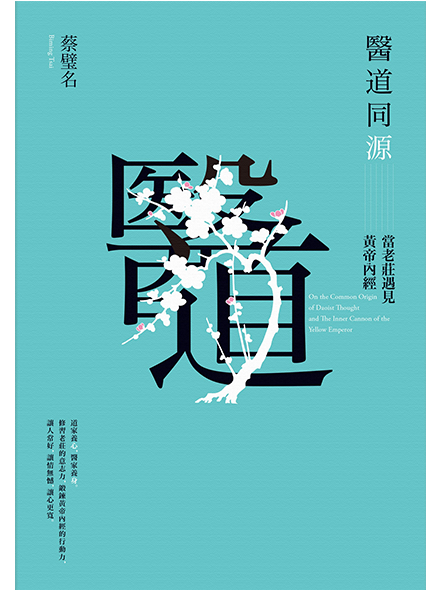Many of us have read Laozi’s ancient text, the Dao De Jing, and even more of us have experienced the benefits of traditional Chinese medicine (TCM). Yet how many knew that the philosophy and medical theory could combine to form a powerful, energizing formula for healthy living? Tsai Biming brings Laozi, Zhuangzi, and Huangdi Neijing together into a conversation on holistic approaches to modern life.
Many people in Europe and America have long been familiar with the ancient Chinese sage Laozi and the philosophy of the Dao De Jing. Even more of us have experienced the benefits of traditional Chinese medicine (TCM) through herbal treatments, acupuncture, traditional massage, and more. But how many know that when Daoist philosophy and the ancient science of traditional medicine come together, they form a powerful, energizing formula for holistic living?
Tsai Biming’s four-part treatise on the power of Daoist thought and TCM puts us in direct conversation with ancient sages, as Tsai unravels the rich metaphors of the Dao De Jing and the Zhuangzi and illuminates their relevance to contemporary life. Why do people today expend all their energy on achieving success, yet never seem to find satisfaction? Why do we know so much about advancement, yet nothing about happiness?
Tsai’s four-part book provides inspiring answers to questions like these. Part I examines the nature of ambition, finding guidelines in Daoist texts for those of us looking to keep both our dreams and our bodies healthy. Parts II and III lay out the many differences between mainstream values and the values of traditional Chinese medicine and life philosophy, while Part IV gives us a key to navigating those discrepancies by illuminating “the use of uselessness”, the secret at the heart of Daoism.
A long-time adherent of traditional Chinese medicine, Professor Tsai Biming brings her expertise in Chinese philosophy to bear in a way that reveals the undying relevance of ancient texts as well as the true coherence between Daoism and traditional Chinese medicine.
